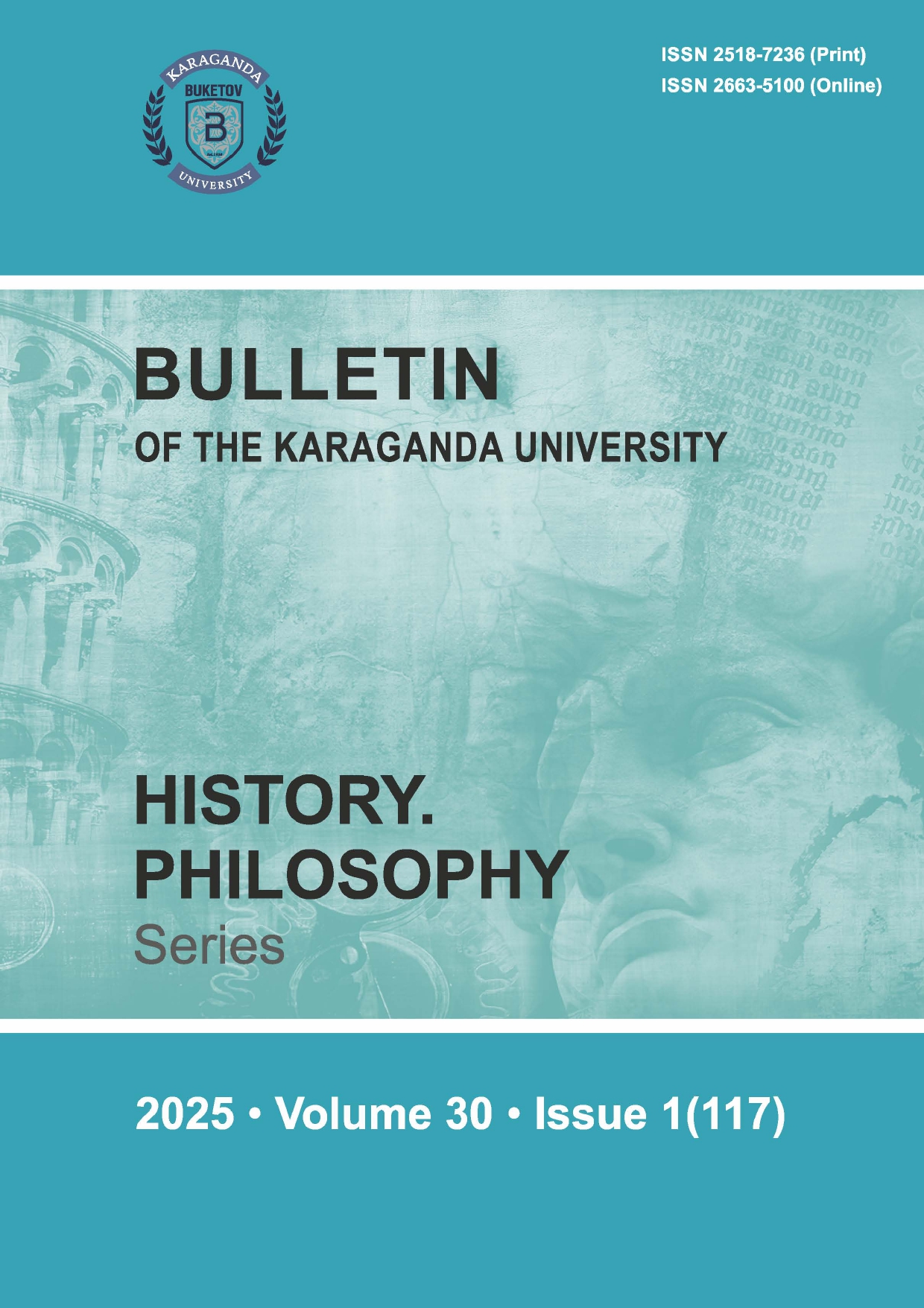The digitalization era: philosophical aspects of technological civilization in modern Kazakhstan
DOI:
https://doi.org/10.31489/2025hph1/286-299Keywords:
Kazakhstan, education, society, youth, digitalization, technology, civilizationAbstract
This article delves into the philosophical implications of digitalization in contemporary Kazakhstan, focusing
on its transformative impact on education, societal structures, and the aspirations of youth. As the nation nav-
igates the complexities of technological civilization, the interplay between digitalization and cultural identity
becomes increasingly critical. The study examines how digital technologies are reshaping educational para-
digms, altering social dynamics, and influencing the behaviors and goals of younger generations, reflecting
both the challenges and opportunities presented by this digital shift. The research employs a qualitative meth-
odology, integrating philosophical analysis and thematic exploration. It includes a review of relevant litera-
ture, case studies, and an interpretative approach to assess the ethical, social, and cultural dimensions of digi-
talization. Key examples from Kazakhstan’s educational and social contexts illustrate how digital transfor-
mation is affecting the nation. By highlighting the philosophical underpinnings of digitalization, the study
emphasizes the necessity for a framework that addresses the moral and cultural implications of technological
progress. It argues that digitalization not only facilitates modernization but also fosters inclusivity and pro-
gressiveness. Ultimately, this article positions digitalization as a vital force in shaping a civilization that har-
monizes technology with Kazakhstan’s traditional values and evolving modern needs.




